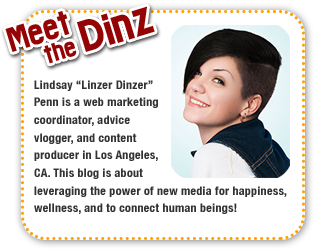In his TED speech, Ze Frank inspires
the TED audience by focusing his speech on human connection. He describes the
way he mobilized his internet audience by having them dress up their vacuum
cleaners, put pieces of bread on various parts of the Earth to create an Earth
sandwich, re-take their childhood photos as adults, and remixing and seeking
out the performer of a viral music piece.
With great passion and vibrancy, Ze
explains that Ray’s “I’m About To Whip Somebody’s Ass” inspired him to explore
further how far-reaching, user-created media can touch people’s lives. He says,
“this is what I wanted to do.” As I watched him, I concurred with this
sentiment.
Ze continues to inspire when he brings
attention to the way people are now living their lives on digital screens.
While at first glance, it may seem like a dangerous trend, Ze reminds us that a
perfectly valid aspect of life is being lived in the realm of Web 2.0. He further explores this topic by bringing up
what the end goal is – to connect. And if connections are taking place on the
Internet that nurture genuine feelings, why not use the pathways that Internet
introduces into our culture to maximize the potential of these connections?
Ze Frank is an expert on this topic,
and his short speech offers a poignant reflection on his experiences. He
criticizes the simplicity of how the resources for connectivity on the Internet
are being utilized. He compares the Facebook “like” button to the scribbled
notes of a third grader.
This is what I find particularly
inspiring about his approach. These days, there is huge debate about whether or
not YouTube can compete with television. Ze’s exploration of the potential of
the web, potential that television lacks, is how he overcomes adversity. With
Ze’s approach, it can finally come to light what the Internet can offer that TV
cannot. TV and theaters can give you shows. What they cannot give you is
interactivity.
Ze Frank is one of the few individuals
active in the new age of web who has brought true divergent thinking and
innovation to online entertainment. He is not only an inspiration to myself,
but many who have made a name for themselves on YouTube.
You can view his TED speech here: http://youtu.be/3gSSNHO1dDs
You can visit Ze Frank's official website here: http://www.zefrank.com/
